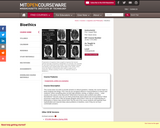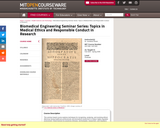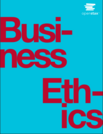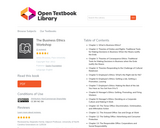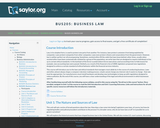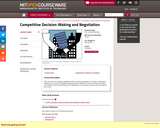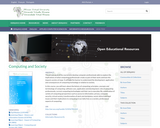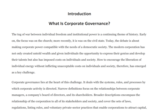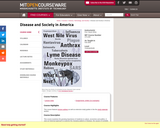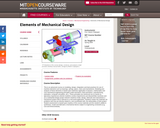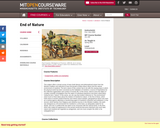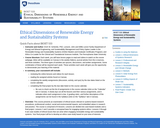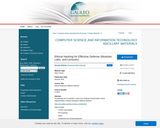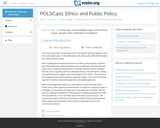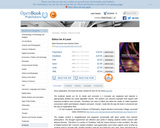Business Ethics is designed to meet the scope and sequence requirements of the single-semester business ethics course. This title includes innovative features designed to enhance student learning, including case studies, application scenarios, and links to video interviews with executives, all of which help instill in students a sense of ethical awareness and responsibility.
Chapter 1: Why Ethics Matter
1.1 Being a Professional of Integrity
1.2 Ethics and Profitability
1.3 Multiple versus Single Ethical Standards
Chapter 2: Ethics from Antiquity to the Present
2.1 The Concept of Ethical Business in Ancient Athens
2.2 Ethical Advice for Nobles and Civil Servants in Ancient China
2.3 Comparing the Virtue Ethics of East and West
2.4 Utilitarianism: The Greatest Good for the Greatest Number
2.5 Deontology: Ethics as Duty
2.6 A Theory of Justice
Chapter 3: Defining and Prioritizing Stakeholders
3.1 Adopting a Stakeholder Orientation
3.2 Weighing Stakeholder Claims
3.3 Ethical Decision-Making and Prioritizing Stakeholders
3.4 Corporate Social Responsibility (CSR)
Chapter 4: Three Special Stakeholders: Society, the Environment, and Government
4.1 Corporate Law and Corporate Responsibility
4.2 Sustainability: Business and the Environment
4.3 Government and the Private Sector
Chapter 5: The Impact of Culture and Time on Business Ethics
5.1 The Relationship between Business Ethics and Culture
5.2 Business Ethics over Time
5.3 The Influence of Geography and Religion
5.4 Are the Values Central to Business Ethics Universal?
Chapter 6: What Employers Owe Employees
6.1 The Workplace Environment and Working Conditions
6.2 What Constitutes a Fair Wage?
6.3 An Organized Workforce
6.4 Privacy in the Workplace
Chapter 7: What Employees Owe Employers
7.1 Loyalty to the Company
7.2 Loyalty to the Brand and to Customers
7.3 Contributing to a Positive Work Atmosphere
7.4 Financial Intergrity
7.5 Criticism of the Company and Whistleblowing
Chapter 8: Recognizing and Respecting the Rights of All
8.1 Diversity and Inclusion in the Workforce
8.2 Accommodating Different Abilities and Faiths
8.3 Sexual Identification and Orientation
8.4 Income Inequalities
8.5 Animal Rights and the Implications for Business
Chapter 9: Professions under the Microscope
9.1 Entrepreneurship and Start-Up Culture
9.2 The Influence of Advertising
9.3 The Insurance Industry
9.4 Ethical Issues in the Provision of Health Care
Chapter 10: Changing Work Environment and Future Trends
10.1 More Telecommuting or Less?
10.2 Workplace Campuses
10.3 Alternatives to Traditional Patterns of Work
10.4 Robotics, Artificial Intelligence, and the Workplace of the Future
Chapter 11: Epilogue: Why Ethics Still Matter
11.1 Business Ethics in an Evolving Environment
11.2 Committing to an Ethical View
11.3 Becoming an Ethical Professional
11.4 Making a Difference in the Business World
Reviews available here: https://open.umn.edu/opentextbooks/textbooks/business-ethics-2018

